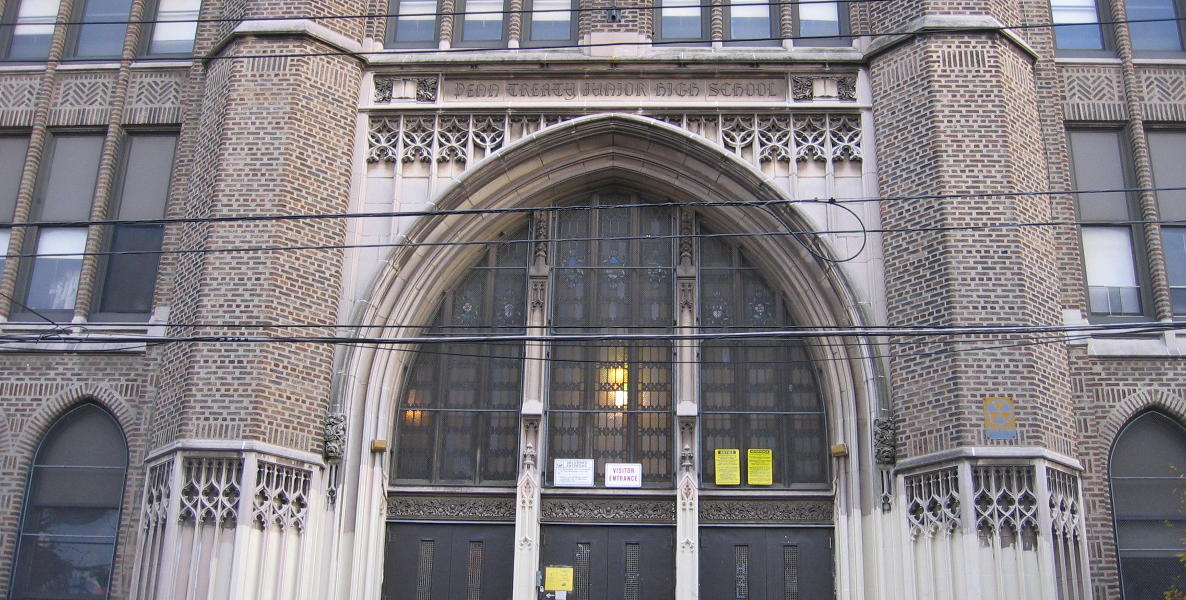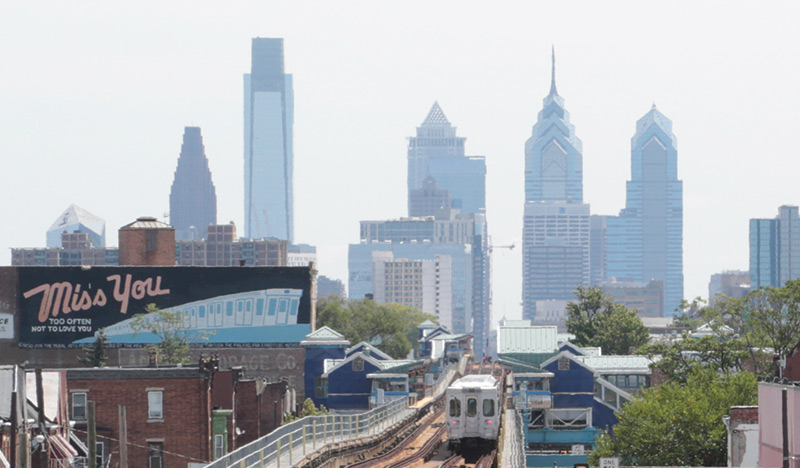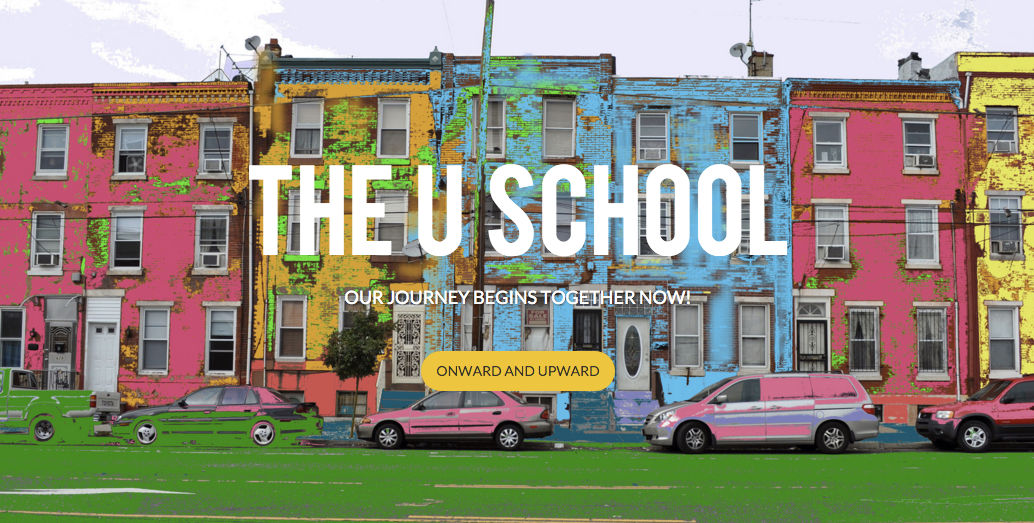At the U School, one of the city’s two-year-old small high schools of choice, humanities teacher Sam Reed sees everyday what the future might look like for his mostly black, mostly poor students in Philadelphia, where only 65 percent of public school students graduate high school and more than half of the adult population is low-literate. Many of Reed’s 9th and 10th graders start high school reading well below their grade level. Some never pick up a paper book, or choose to read anything not assigned. For some, reading is such a struggle that pleasure never comes into it.
![]() That’s why Reed organized today’s African American Read-In at the U School, turning the North Philly high school into a mini-literary festival for one day. Part of a national movement led by the National Network of Teachers of English, the Read-In was created 27 years ago to encourage reading among African American students during Black History Month, particularly by celebrating the works of black writers. Over a million readers nationwide are expected to participate this year, and then report back on their results. In Philadelphia, the U School, whose student population is 80 percent black, is the only school officially participating.
That’s why Reed organized today’s African American Read-In at the U School, turning the North Philly high school into a mini-literary festival for one day. Part of a national movement led by the National Network of Teachers of English, the Read-In was created 27 years ago to encourage reading among African American students during Black History Month, particularly by celebrating the works of black writers. Over a million readers nationwide are expected to participate this year, and then report back on their results. In Philadelphia, the U School, whose student population is 80 percent black, is the only school officially participating.
For Reed, the event is a piece of a larger puzzle he faces in his work. “The graduation rate here is going up,” Reed says. “But then they graduate to what? They can’t persist in college, can’t persist in a job, because we haven’t prepared them for that.” Reading, Reed notes, is a key to their success. Which means first, getting them to read.
![]() The U School, a high school built around design thinking that allows students to learn at their own pace, partnered with the University of Pennsylvania to build a Lit Lab for reading, writing and literacy. Reed says the school populated its lending library with books by and about African Americans, on subjects that would interest his students, like black folk tales, graphic novels, and hip-hop—including a book hip-hopper Meek Mill wrote based on one of his songs. The hope, Reed says, is that their enjoyment of these books will ready them for textbooks and more academic reading.
The U School, a high school built around design thinking that allows students to learn at their own pace, partnered with the University of Pennsylvania to build a Lit Lab for reading, writing and literacy. Reed says the school populated its lending library with books by and about African Americans, on subjects that would interest his students, like black folk tales, graphic novels, and hip-hop—including a book hip-hopper Meek Mill wrote based on one of his songs. The hope, Reed says, is that their enjoyment of these books will ready them for textbooks and more academic reading.
“Picking up a Meek Mill novel is a gateway to reading a classical novel,” Reed says. “We’re reading the Odyssey now, and using Meek Mill’s odyssey as a reference. Finding those connections for these kids is really rich.”
![]() For today’s Read-In, Reed sent his students this week to the Lab’s lending library, to pick out one book. At various points in their day, the students will be asked to drop everything and read for 15 minutes. (“The kids are really excited about the books they’ve picked, and started reading them Thursday,” Reed notes. “I didn’t stop them!”)
For today’s Read-In, Reed sent his students this week to the Lab’s lending library, to pick out one book. At various points in their day, the students will be asked to drop everything and read for 15 minutes. (“The kids are really excited about the books they’ve picked, and started reading them Thursday,” Reed notes. “I didn’t stop them!”)
Around 50 kids also signed up for one of four workshops with local African American authors: Maya Anderson, a local high schooler who published her own book; Penn Professor Ebony Elizabeth Thomas, co-author of Reading African American Experiences in the Obama Era; Timothy Welbeck, a lawyer and rap artist who teachers Hip-Hop and Black Culture at Temple; and Lamont Dixon, aka Napalm da Bomb, a spoken word artist. Throughout the day, students will travel to other classes in the school to read poems and stories they’ve written themselves.
“Once you hook kids up with this stuff they’re interested in, all the rest of the academic stuff becomes meaningful and worthwhile,” Reed says. “Just the fact that they are excited about reading is remarkable. Spurring on their reading in this way is going to be awesome.”
Like what you’re reading? Stay updated on all our coverage. Here’s how:








